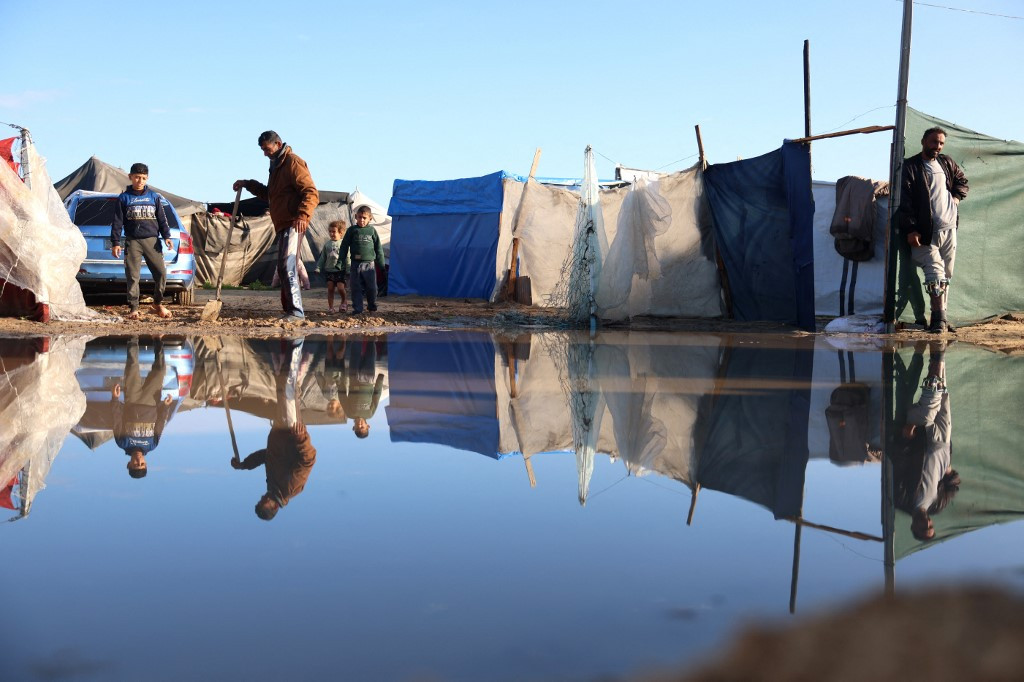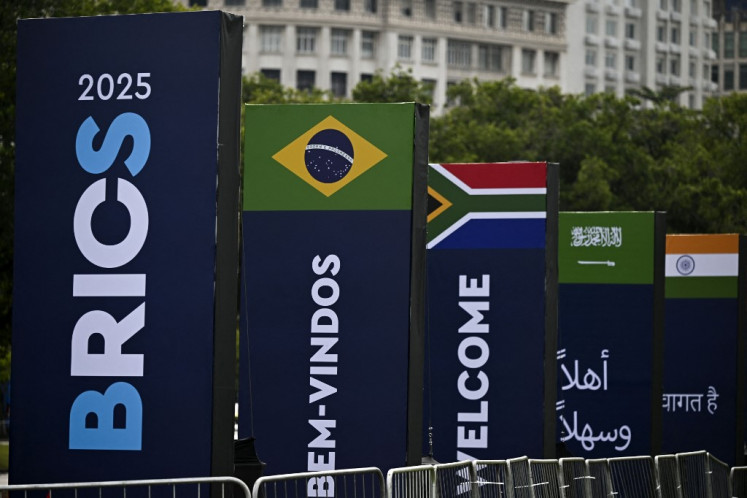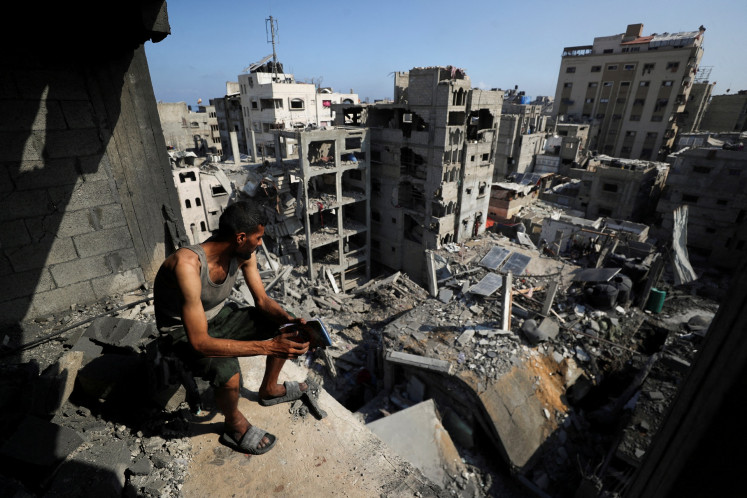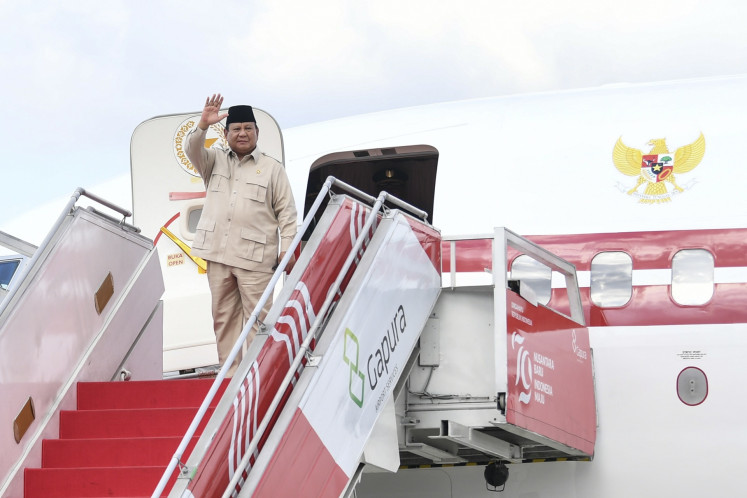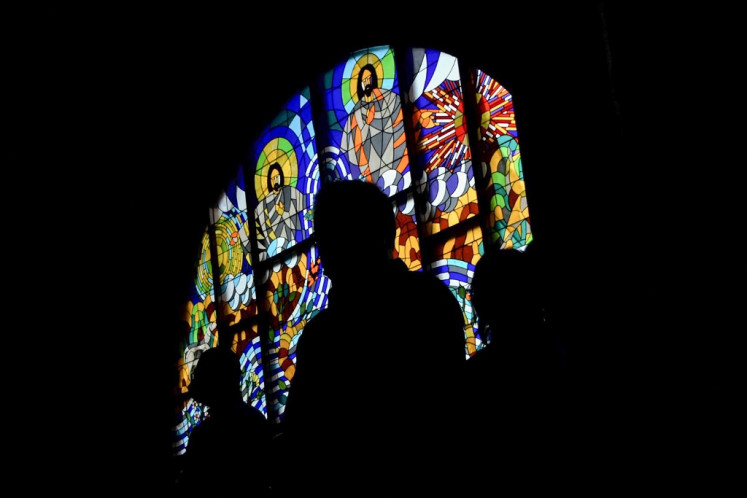Popular Reads
Top Results
Can't find what you're looking for?
View all search resultsPopular Reads
Top Results
Can't find what you're looking for?
View all search resultsGaza babies die from winter cold say medics and families
Their baby was one of the seven children who died from the cold within the span of a week, the Hamas-run territory's health ministry said on Monday.
Change text size
Gift Premium Articles
to Anyone
Y
ahya al-Batran clutched the tiny clothes of his dead newborn son Jumaa, just days after the baby died from the cold in their tent in war-torn Gaza.
"We are watching our children die before our eyes," said the 44-year-old.
Their baby was one of the seven children who died from the cold within the span of a week, the Hamas-run territory's health ministry said on Monday.
"We fled the bombing from Beit Lahia, only for them to die from the cold here?" said the child's mother Noura al-Batran, referring to their hometown in northern Gaza.
The 38-year-old is still recovering from giving birth prematurely to Jumaa and his surviving twin brother, Ali, who is being treated in an intensive care unit at a hospital in southern Gaza.
Completely destitute and repeatedly displaced by the Israel-Hamas war, the Batran family live in a makeshift tent in Deir el-Balah made of worn-out blankets and fabric.
Like hundreds of others now living in a date palm orchard, they have struggled to keep warm and dry amid heavy rains and temperatures that have dropped as low as eight degrees Celsius (46 degrees Fahrenheit).
"We don't have enough blankets or suitable clothing. I saw my baby start to freeze, his skin turned blue and then he died," she cried.
The twins were born prematurely and she said the doctor decided to take the babies out of the incubator despite the family not having access to heating.
On a rain-soaked mat, the father hugged his older children tight with blankets and worn-out cloth in a corner of their tent.
He then placed a small pot of water on the stove to make tea, which he then mixed with dry bread to make a meagre lunch for his family with a little cheese and the thyme-based spice blend called zaatar.
'Everything leads to death'
Like thousands of other families enduring dire conditions, they face shortages of food, fuel, and medicine, with the United Nations warning of an imminent collapse of the healthcare system.
In southern Gaza's Khan Yunis, Mahmoud al-Fasih said he found his infant daughter, Seela, "frozen from the cold" in their small tent near al-Mawasi beach, where they were displaced from Gaza City.
He rushed her to the hospital in the area that Israel has designated a "humanitarian zone", but she was already dead.
Ahmad Al-Farra, a doctor and director of the emergency and children's department at Nasser Hospital, told AFP that the three-week-old baby arrived at the hospital with "severe hypothermia, without vital signs, in cardiac arrest that led to her death".
Another 20-day-old baby, Aisha al-Qassas, also died of cold in the area, according to her family.
"In Gaza, everything leads to death," said the baby's uncle, Mohamed al-Qassas. "Those who do not die under Israeli bombardments succumb to hunger or cold."
The Hamas government press office in Gaza warned on Monday of the impact of more harsh weather expected in the coming days, saying it posed a "real threat to two million displaced people," the majority of whom live in tents.
Farra warned that this would likely be accompanied by "the death of greater numbers of children, infants, and the elderly."
"Life in tents is dangerous due to the cold and the scarcity of energy and heating sources," he said.

